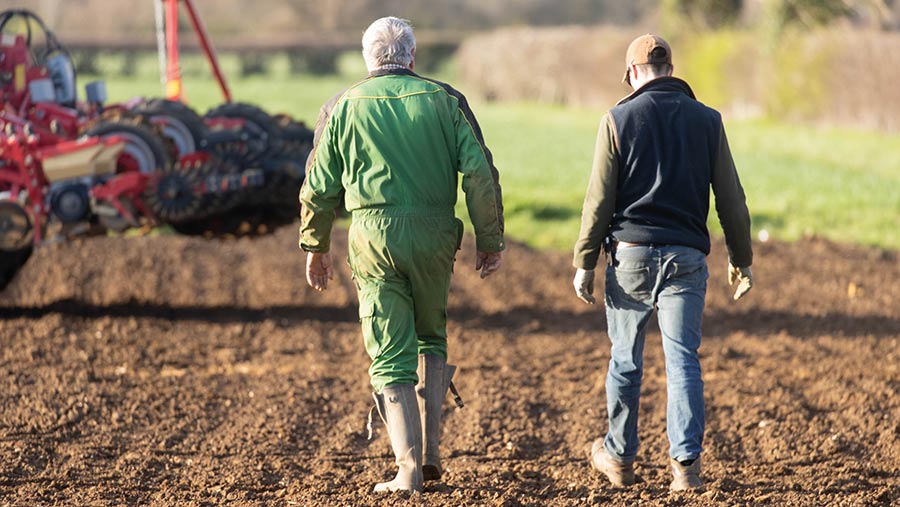Free business advice through Defra resilience fund – last round
 © Tim Scrivener
© Tim Scrivener
Funding for free business advice is still available through the final round of the Future Farming Resilience Fund (FFRF) in England.
This round of the Defra scheme opened in October and has £32m of funding running until March 2025.
Almost 1,800 farmers have registered for support so far.
See also: Pilot seeks to shape new entrant help for Defra scheme
The final phase
Andrew Powley, team leader at Defra, said: “In this phase, 17 known and trusted organisations in the farming community have been funded by us to give advice to 32,000 people.”
The advice can range from consultations and farm visits to group workshops on different areas of business management.
This final stage follows initial and interim phases which delivered support to about 8,000 participants, according to Defra figures.
A Defra spokesman said the extended delivery window of the latest phase enables longer term programmes of support to be provided. It also allows individuals who have participated in previous phases to access follow-on support.
Providers
Land agent and adviser GSC Grays is focusing on the North of England.
Guy Coggrave, managing director of the firm, said there had been a positive uptake so far.
“We have got nearly 10% of our target signed up for the initial stages, which I think, given the timeframe, is excellent,” said Mr Coggrave.
“The feedback from the scheme seems to be that farmers are finding it very useful.”
So far, there has been a high uptake from beef, sheep, and arable businesses, however all types are covered.
Mr Coggrave said his firm is seeing a mix of businesses needing different types of support and advice on how to best fill the gap left by losing the Basic Payment.
The scheme has been structured to encourage thinking about the future direction of the business.
There is a focus on succession planning, enterprise mixes, and restructuring to bring in other income streams through diversification or environmental schemes.
Farm businesses that have been through the earlier stages of the fund are now starting to be referred for further support and advice. This offers up to two days of consultancy that it is hoped will add value to their businesses.
The firm is also running farm breakfast meetings throughout December and January, concentrating on the financial climate and where businesses should be focusing.
The meetings will allow farmers to find out more about the Future Farming Resilience Fund and sign up for further free advice.
DJM consulting is providing on-farm advice across England with a focus on the Midlands and South West England.
David Meredith, principal rural business consultant at DJM consulting, said he was seeing a reasonable uptake from local businesses and also getting some enquiries from further afield.
“We are offering on-farm visits, asking the farmers to think about how they are going to deal with not only the loss of the Basic Payment Scheme but the current economic climate. Our strategic business consultants are helping them through that challenge,” said Mr Meredith.
Members of family farming businesses can have one-to-one sessions with consultants.
“We cover a full spectrum of family farming businesses, because our focus is on the business side and the strategy, the enterprise type is less critical,” he said.
Mr Meredith advises farmers to take full advantage of the free service while they can. “There is not one business that would not benefit from it,” he said.
A full list of providers offering free advice to farm businesses in England can be found on the Defra website.
